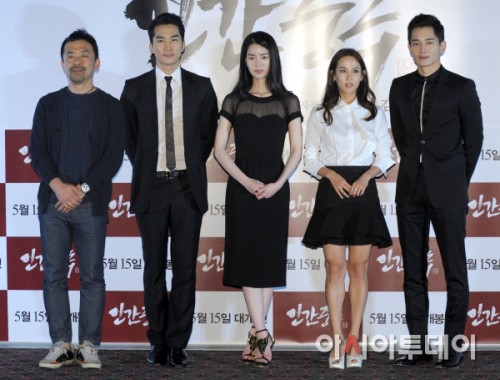

In one memorable scene, a third party detects their affair, and surprisingly, is actually supportive of it. What makes the narrative thread in "Obsessed" so intriguing is that it's not outside forces who are destroying Jin-pyeong and Ga-heun so much as it is their unwillingness to cause trouble to the other people in their lives- men and women who are, for the most part, friendly and kind. It's more that they just share the same regret at having chosen to enter into lives that they really don't enjoy, and for which there's no foreseeable escape.

When Ga-heun (played by Lim Ji-yeon) enters his life, there isn't really a crackle of intimacy or attraction that sets them off toward love. Jin-pyeong (played by Song Seung-heon) is a man who works to suppress his own emotions, most relevantly ennui. We never get the sense that the society these characters live in is wrong, so much as it is soul-crushing for the two specific people who are our main characters. Even though "Obsessed" is at its most basic level a story of an extramarital love affair, the film largely escapes these trappings. Mostly it just boils down to hypocrisy and emotional suppression, typically focused on sexual mores. American culture has developed its own theories as to why the bourgeois life of those bygone days was so miserable. Couple that with the backdrop of the Vietnam War, and the parallel becomes rather unmistakable. Everything, from their clothing to their houses to the way they spend their free time, appears determined to mimic the lifestyles of Americans living in that same time period. The military families in this film live in a distinctly American styled backdrop. The part about "Obsessed" that most immediately commands attention is the set design.


 0 kommentar(er)
0 kommentar(er)
